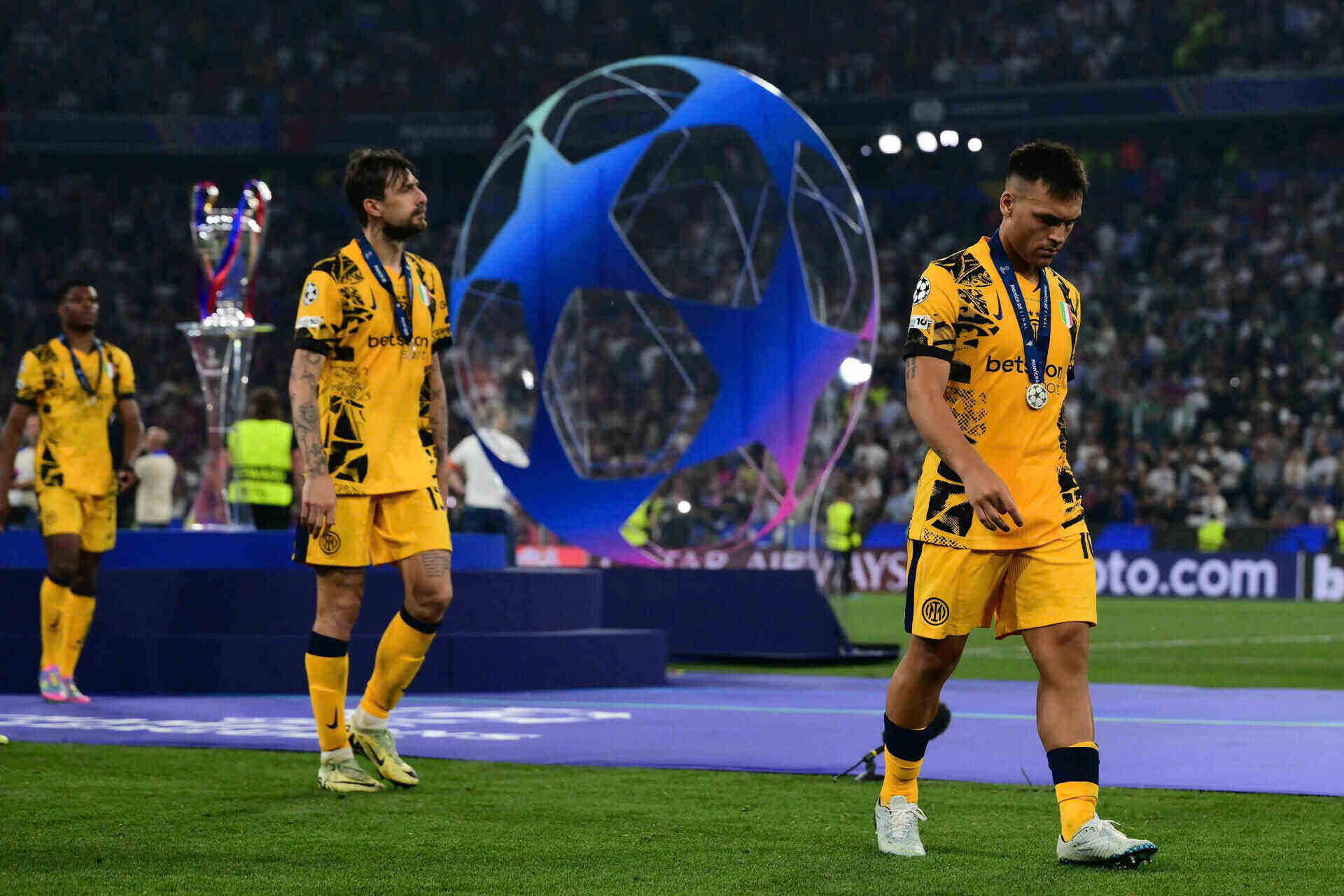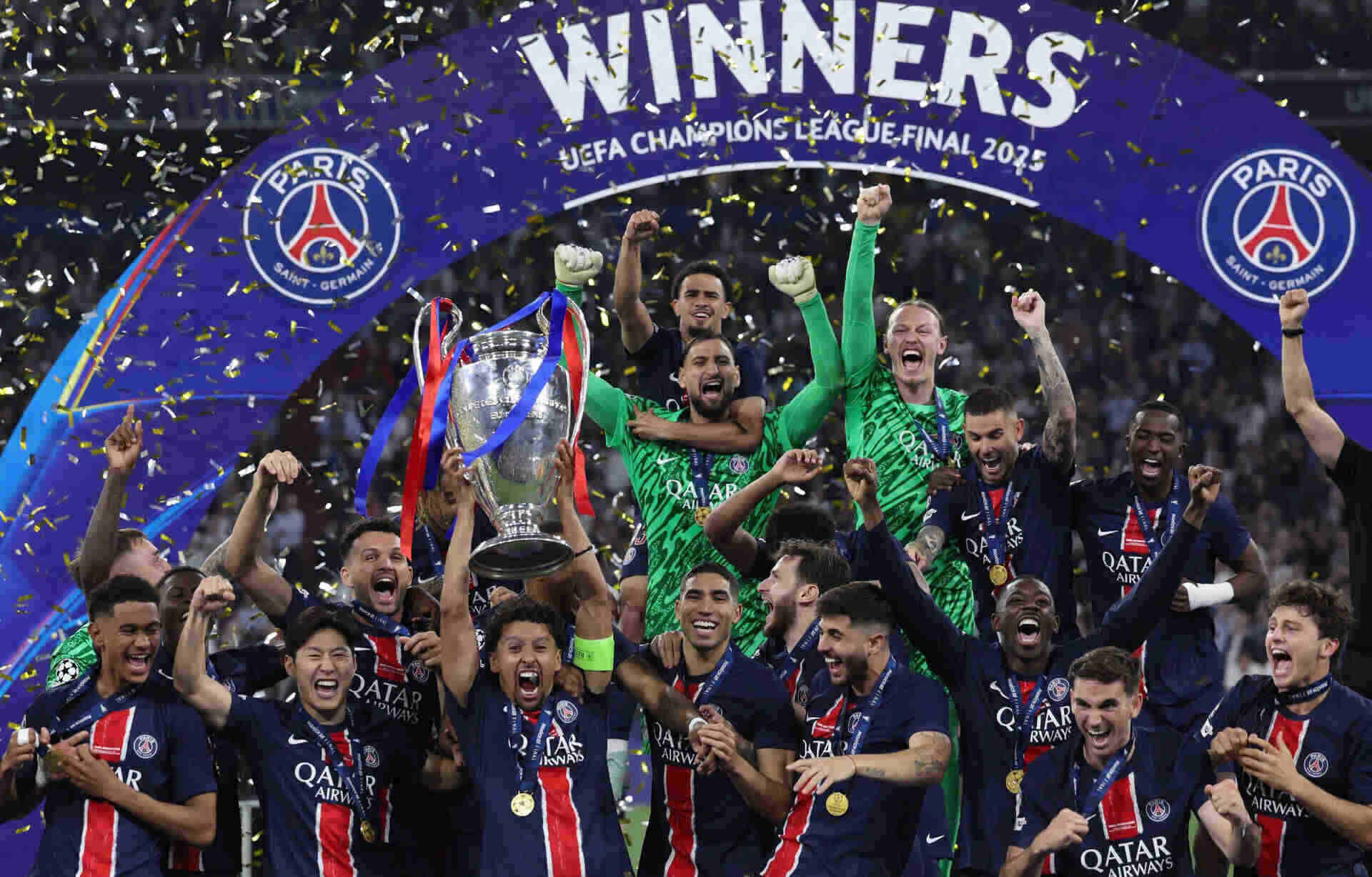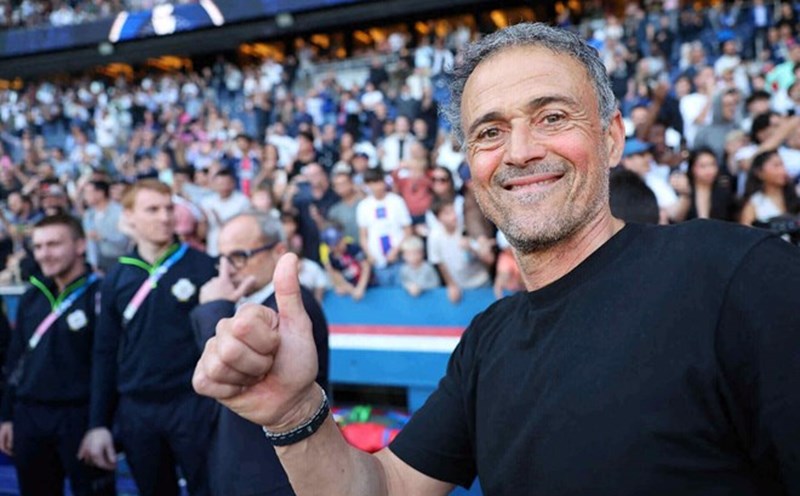Before the Champions League final, there were some notable statistics.
Inter Milan are not only the oldest team in the Champions League but also the oldest team in the "Big Five" group of Europe with an average age of 29.4 ( per minute of play), ranked 96/96.
In contrast, PSG, aged 23, is the second youngest team in the "Big Five", behind only Strasbourg.
Another statistic is that PSG have run an average of 112 km per match compared to Inter's 92 km, which is the highest and lowest number among clubs in the Champions League. And so the main question is whether Inter can take advantage of the experience or will PSG impose freshness and superior fitness?
Therefore, it is ironic when things go in a way that few people expect. Inter run more PSG (111.7 km than 104.4 km), although often at a slower pace. That could be a result of them falling behind early, but it is also a sign of how well Luis Enrique's side have kept the ball.

Above all, PSG's first two goals came from Inter's lack of experience - an area that should be a strong point of the Serie A team. Inter's defense completely miscalculated Vitinha's pass to Doue, before Hakimi opened the score.
Nicolo Barella's ill-advised decision to try to get the ball off the pitch created an opportunity for Willian Pacho to regain the ball, directly leading to a counter-attack by PSG and Doue to increase the score to 2-0.
Experience is important, but it does not mean you will make the right decision. And at the Allianz Arena, PSG look like a veteran team, not Inter.
Inter have reached the Champions League final with better quality than quantity. They happily took pressure and created opportunities for their opponents to launch terrible shots. The important thing is that Inter always knows how to prevent high-quality opportunities from opponents.
But that is not entirely the same as Inter's passiveness in defence. They always have a certain level of cruelty when counter-attacking.
In the field of football statistics, there is an indicator called PPDA (Passes Per Defensive Action). This is the number of opponent's passes in a defensive situation of the home team. The lower the PPDA means that the team is fierce.
However, in the first half of the match against PSG, Inter's PPDA was 27.1. They can't get close enough to impact anything PSG wants to do. Eight of PSG's 11 starters completed at least 20 first-half passes and nine completed at least one advanced pass. PSG extended and curved Inter's defence as desired.
PSG could lose patience if the ball does not go into the net as quickly as they want, launching long-range shots, wasting opportunities and making them more vulnerable to counter-attacks. But with Achraf Hakimi's goal in the 12th minute, there was no chance of that happening.
PSG played with absolute confidence and accuracy. They took Federico Dimarco awfully off the field in the first goal. Ousmane Dembele's assist in the second goal was almost completely accurate.

Inter were unlucky in their second goal, but there was not a single moment in the first half that they could control what PSG wanted to do. And in the second half, when Inter found a way to put more pressure, it unintentionally opened up a super-fast path for PSG to counter-attack and score.
"We had a terrible start, conceded early and then had our squad stretched. This makes things easier for PSG. This terrible defeat clearly left us with a lot of bitterness, but it cannot erase what we have done to get here.
We tried playing long balls, but they were also stronger in the second ball disputes. After conceding the opening goal, we were dragged out. Obviously we have to play better, more technically, more consistently, but what we have prepared for is not shown" - Inzaghi said.










